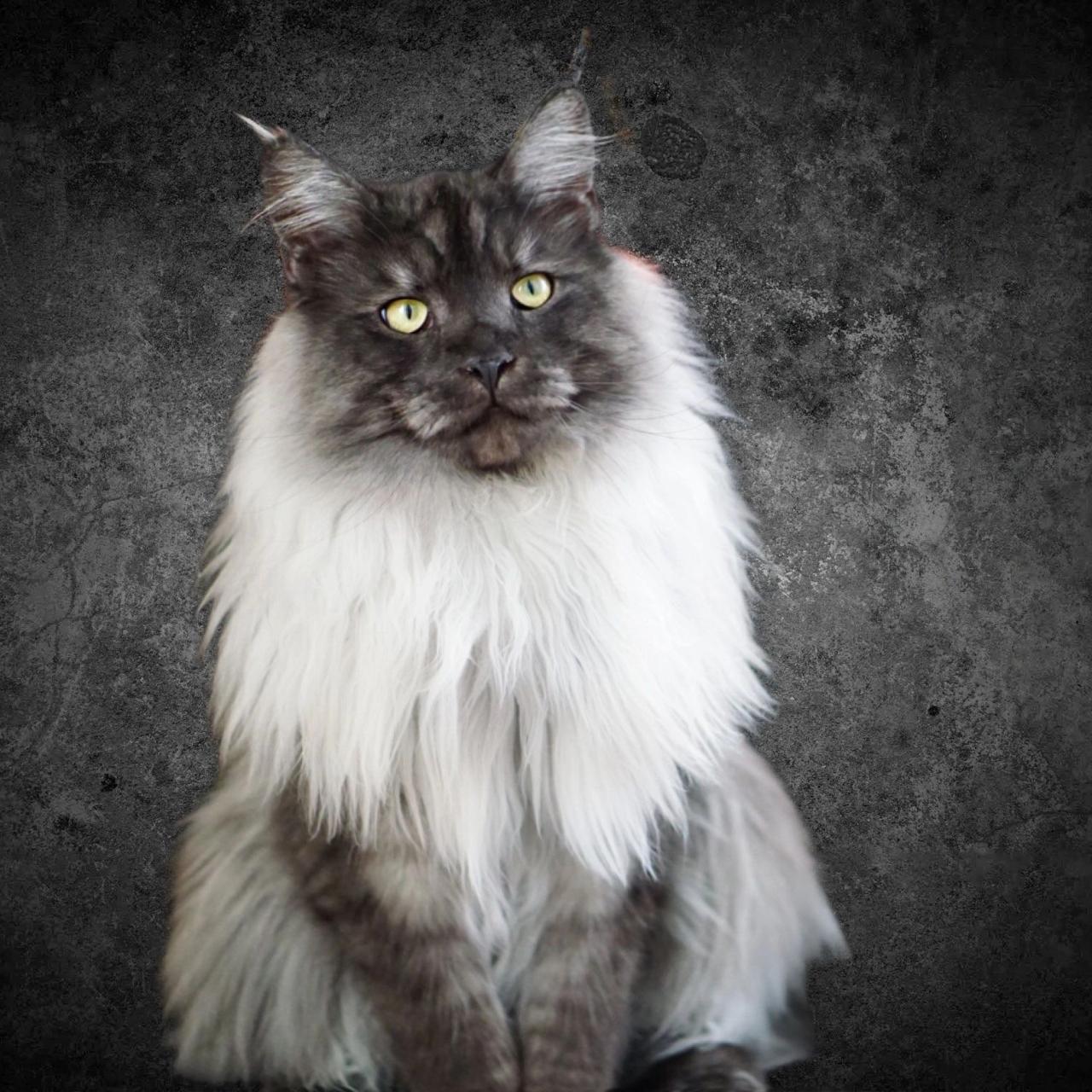Step into the captivating world of male Maine Coon kittens for sale, where majestic fluff balls await to steal your heart. Known for their gentle giant nature, these adorable felines promise a lifetime of companionship and unwavering loyalty.
Embark on a journey through the breed’s fascinating history, delve into the unique traits of male Maine Coons, and uncover the secrets of their care. From their towering size to their affectionate personalities, these kittens are a treasure waiting to be discovered.
Breed Overview
The Maine Coon is a large, domesticated cat breed with a distinctive physical appearance and a gentle temperament. Originating in the state of Maine in the United States, this breed is known for its thick, shaggy coat, large size, and friendly personality.
Maine Coons are typically large cats, with males weighing between 13 and 18 pounds and females weighing between 8 and 12 pounds. They have a long, muscular body with a broad chest and a slightly arched back. Their legs are long and sturdy, with large paws that are well-suited for walking in snow.
The Maine Coon’s coat is one of its most distinctive features. It is thick and shaggy, with a water-resistant texture that helps to protect the cat from the cold and wet weather of its native environment. The coat comes in a variety of colors and patterns, including brown tabby, black, and white.
Maine Coons are known for their gentle and affectionate temperament. They are typically good with children and other pets, and they make excellent companions for people of all ages. Maine Coons are also very intelligent cats, and they are known for their playful and curious nature.
Origin
The exact origins of the Maine Coon are unknown, but there are several theories about how the breed came to be. One theory is that the Maine Coon is descended from longhaired cats that were brought to Maine by English settlers in the 17th century.
Another theory is that the Maine Coon is a natural hybrid between a domestic cat and a wild bobcat. Whatever its origins, the Maine Coon is now a well-established breed that is popular all over the world.
Physical Characteristics
Maine Coons are large, muscular cats with a distinctive physical appearance. They have a long, shaggy coat that comes in a variety of colors and patterns. Their eyes are large and expressive, and they typically have a sweet and gentle expression.
Maine Coons are also known for their large paws, which are well-suited for walking in snow.
Temperament
Maine Coons are known for their gentle and affectionate temperament. They are typically good with children and other pets, and they make excellent companions for people of all ages. Maine Coons are also very intelligent cats, and they are known for their playful and curious nature.
Male Maine Coon Kittens
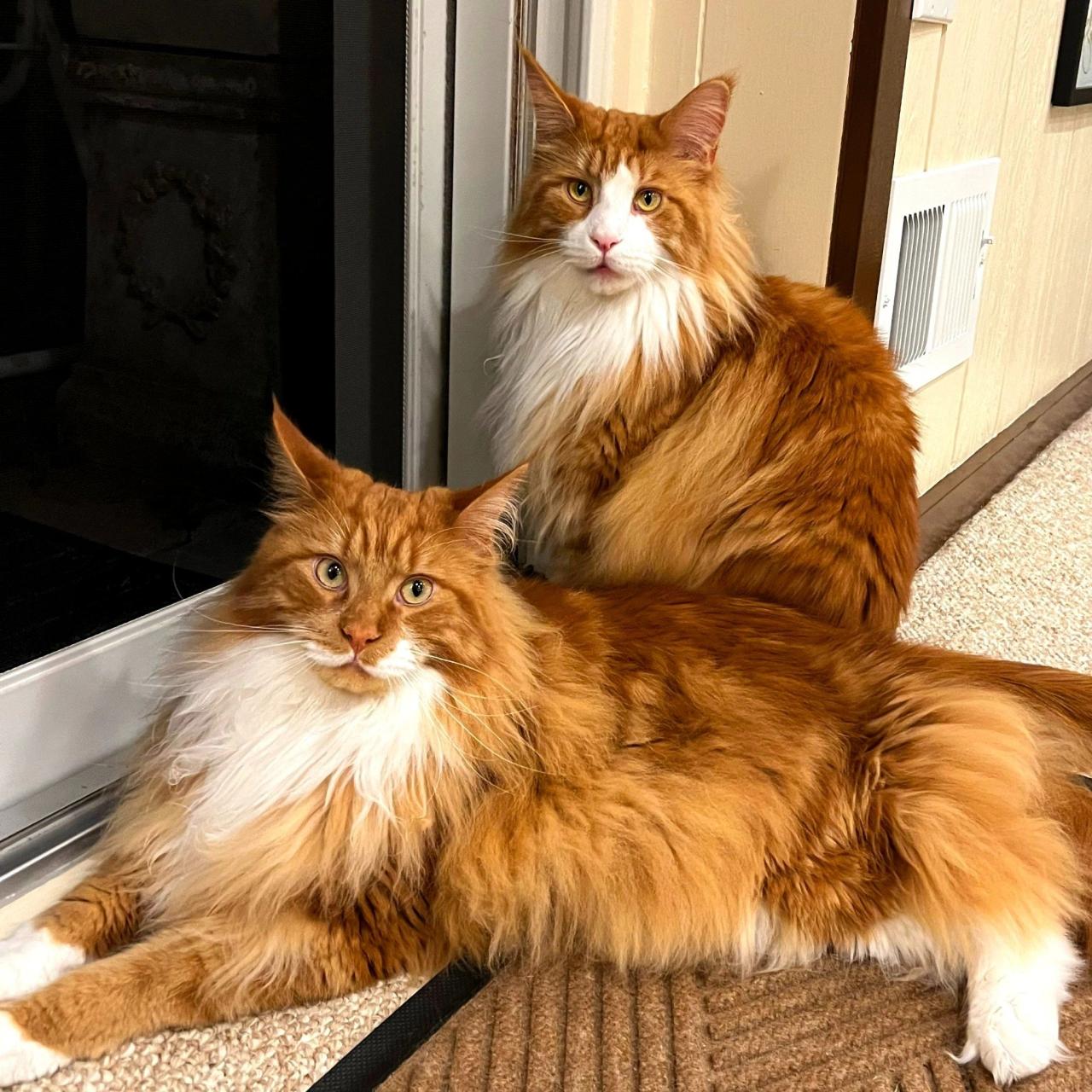
Male Maine Coon kittens are known for their exceptional size, gentle personalities, and playful nature. As they mature, they develop a distinctive appearance with a thick, luxurious coat and a bushy tail that gives them a regal demeanor.
Personality
Male Maine Coons are typically affectionate and playful, forming strong bonds with their human companions. They are known for their gentle nature and love to cuddle and receive attention. While they are generally independent, they also enjoy being around people and participating in family activities.
Socialization Needs
Socialization is crucial for male Maine Coon kittens to develop into well-rounded and confident cats. Exposing them to a variety of experiences, people, and other animals from a young age will help them become comfortable in different situations and less likely to develop behavioral problems.
Size and Growth
Male Maine Coon kittens are typically larger than females and continue to grow until they reach full maturity at around 3-4 years of age. They can weigh anywhere from 13 to 18 pounds and stand up to 40 inches tall, making them one of the largest domestic cat breeds.
Coat and Grooming
Male Maine Coons have a thick, double-layered coat that requires regular brushing to prevent matting. Their long, flowing fur comes in a variety of colors and patterns, including brown tabby, black, and white. Regular grooming will help keep their coat healthy and free of tangles.
Kitten Care
Caring for a Maine Coon kitten is a rewarding experience, but it also requires a commitment to providing proper nutrition, grooming, and veterinary care. Understanding the specific needs of this breed will help ensure your kitten grows into a healthy and happy cat.
Essential aspects of kitten care include:
- Feeding
- Grooming
- Veterinary Care
Feeding
Maine Coon kittens have a hearty appetite and require a diet rich in protein and nutrients. Feed your kitten a high-quality kitten food formulated for large breeds. The amount of food you give will depend on your kitten’s age, weight, and activity level.
Follow the feeding guidelines on the food packaging or consult with your veterinarian.
It’s important to establish a regular feeding schedule and feed your kitten in a quiet, designated area. Avoid overfeeding, as Maine Coons are prone to obesity. Provide your kitten with fresh water at all times.
Grooming
Maine Coons have long, thick coats that require regular grooming to prevent matting and tangles. Brush your kitten’s coat at least twice a week, using a slicker brush and a comb. Pay special attention to areas prone to matting, such as the belly, legs, and tail.
Bathe your kitten only when necessary, as excessive bathing can strip their coat of its natural oils. Trim your kitten’s nails regularly to prevent scratching.
Veterinary Care
Regular veterinary care is essential for the health and well-being of your Maine Coon kitten. Schedule regular checkups with your veterinarian to ensure your kitten is up-to-date on vaccinations, deworming, and parasite control.
Maine Coons are generally healthy cats, but they can be prone to certain health conditions, such as hypertrophic cardiomyopathy (HCM) and polycystic kidney disease (PKD). Your veterinarian can screen for these conditions and provide appropriate treatment or management strategies.
Health Considerations
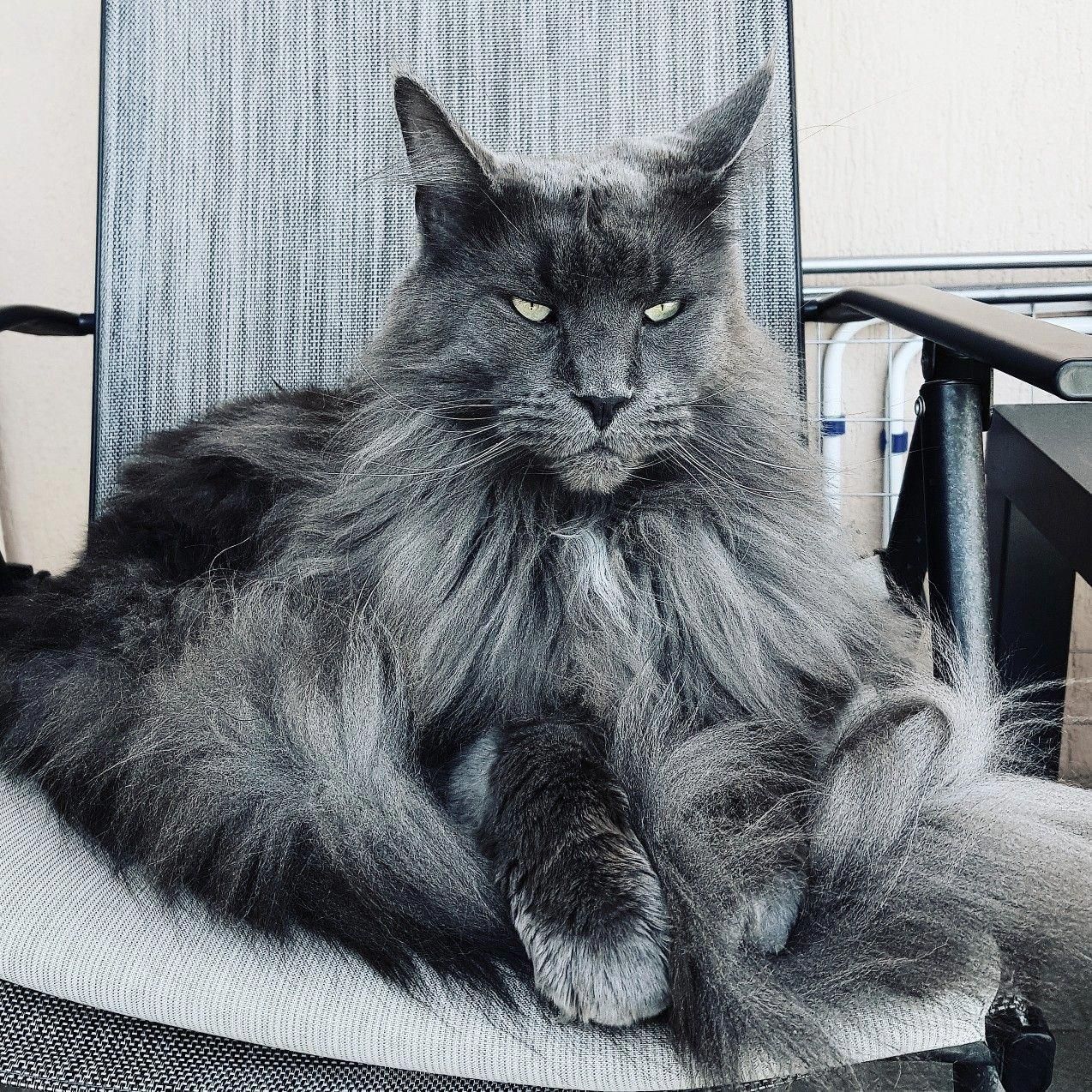
Maine Coons are generally healthy cats, but like all breeds, they are prone to certain health issues. Some of the most common health problems seen in Maine Coons include:
- Hypertrophic cardiomyopathy (HCM):This is a condition in which the heart muscle becomes thickened and enlarged. HCM can lead to heart failure and is the leading cause of death in Maine Coons.
- Polycystic kidney disease (PKD):This is a condition in which cysts develop in the kidneys. PKD can lead to kidney failure and is often fatal.
- Hip dysplasia:This is a condition in which the hip joint does not develop properly. Hip dysplasia can lead to pain, lameness, and arthritis.
- Dental disease:Maine Coons are prone to dental disease, including gingivitis and periodontitis. Dental disease can lead to pain, tooth loss, and other health problems.
There are a number of things you can do to help prevent and treat health problems in your Maine Coon. These include:
- Regular veterinary checkups: Regular veterinary checkups can help to detect and treat health problems early on.
- Vaccinations: Vaccinations can help to protect your Maine Coon from a number of infectious diseases.
- Proper nutrition: A healthy diet is essential for maintaining your Maine Coon’s health.
- Exercise: Exercise can help to keep your Maine Coon active and healthy.
- Dental care: Regular dental care can help to prevent and treat dental disease.
Reputable Breeders
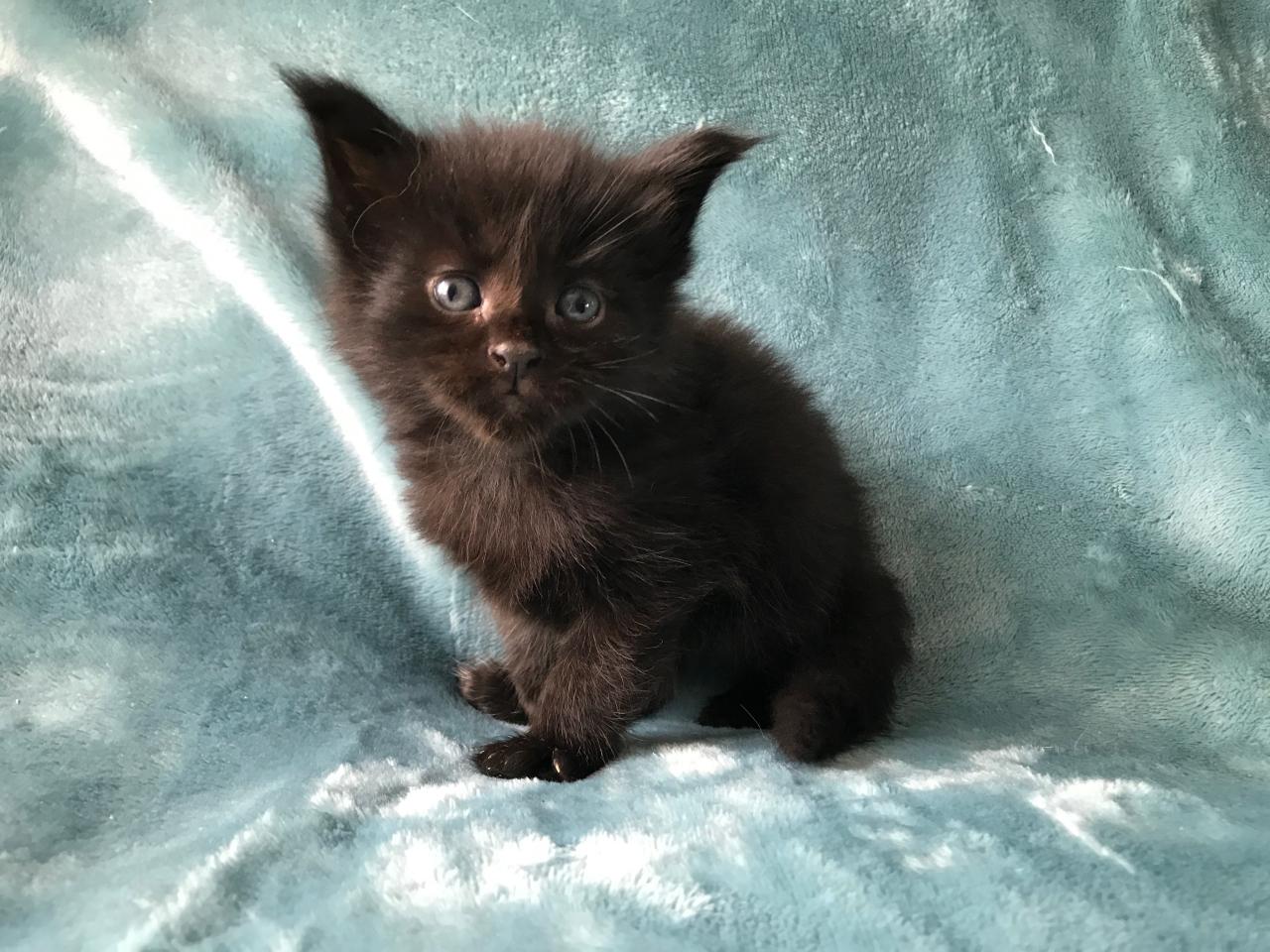
Finding a reputable breeder is crucial for ensuring the health and well-being of your future feline companion. Here’s how to recognize responsible breeding practices:
A reputable breeder will:
Breeder’s Responsibilities
- Prioritize the health and temperament of their cats.
- Conduct genetic testing to screen for potential health issues.
- Provide a clean and well-maintained environment for their cats.
- Socialize kittens with people and other animals.
- Be knowledgeable about the breed and provide guidance on care and training.
Avoid breeders who:
Red Flags
- Mass-produce kittens for profit.
- Sell kittens that are too young (less than 12 weeks old).
- Lack knowledge about the breed or proper care.
- Keep their cats in unsanitary or cramped conditions.
- Offer discounts or “specials” on kittens.
Cost and Expenses: Male Maine Coon Kittens For Sale
Bringing a Maine Coon kitten into your home involves both initial and ongoing expenses. Understanding these costs will help you make an informed decision and ensure you can provide a comfortable and healthy life for your feline companion.
The initial cost of purchasing a Maine Coon kitten can vary depending on factors such as the breeder’s reputation, bloodline, and location. On average, you can expect to pay between $600 to $2,000 for a kitten from a reputable breeder.
Initial Expenses
- Kitten purchase price: $600 – $2,000
- Initial veterinary checkup: $100 – $200
- Vaccinations and deworming: $100 – $200
- Spay or neuter surgery: $150 – $300
- Food and water bowls: $20 – $50
- Litter box and litter: $30 – $50
- Toys: $50 – $100
- Carrier: $50 – $100
- Scratching post: $30 – $50
Once you have your kitten home, there are ongoing expenses to consider:
Ongoing Expenses
- Food: $30 – $50 per month
- Litter: $15 – $25 per month
- Veterinary checkups: $100 – $200 per year
- Vaccinations and deworming: $100 – $200 per year
- Grooming: $50 – $100 per year
- Pet insurance: $30 – $60 per month
Remember, these are just estimates, and actual costs may vary depending on your location, lifestyle, and the specific needs of your kitten.
Training and Socialization
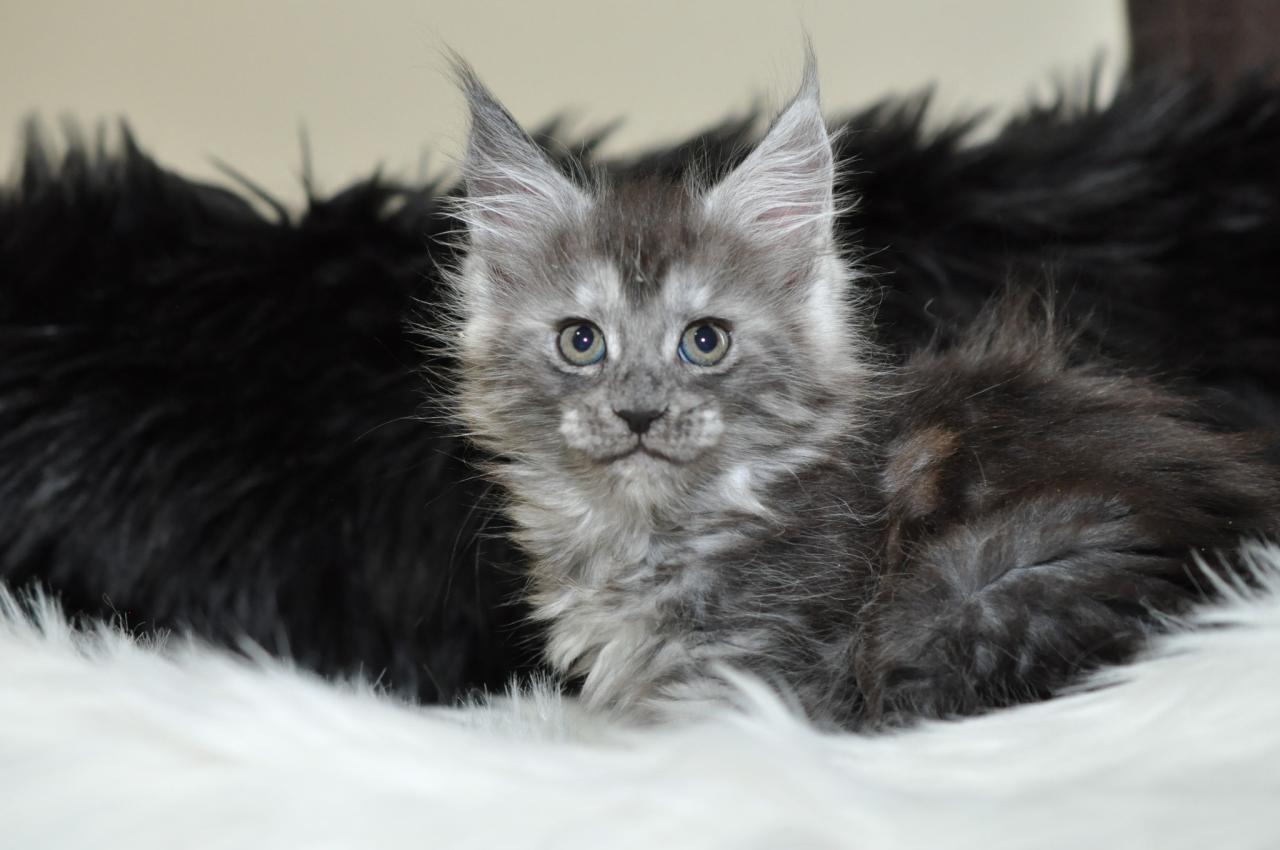
Training and socialization are crucial for Maine Coon kittens to ensure they become well-adjusted and well-behaved cats. By introducing them to various experiences and situations, you can help them develop confidence, reduce anxiety, and foster a strong bond with their human companions.
Positive Reinforcement
Use positive reinforcement techniques to train your kitten. Reward them with treats, praise, or playtime when they exhibit desired behaviors. This will help them associate good behavior with positive outcomes and encourage them to repeat those actions.
Kitten-Proofing
To ensure a safe environment for your kitten, kitten-proof your home by removing potential hazards such as loose cords, toxic plants, and small objects they could choke on. Provide them with a designated scratching post to prevent them from damaging furniture.
Socialization, Male maine coon kittens for sale
Socialize your kitten by exposing them to different people, places, and sounds. Take them on short walks, introduce them to new toys and games, and allow them to interact with other animals in a controlled environment.
Grooming
Start grooming your kitten from an early age to accustom them to the process. Brush their fur regularly, trim their nails, and clean their ears. This will help them develop good hygiene habits and prevent matting or infections.
Litter Box Training
Introduce your kitten to a litter box as soon as possible. Place the litter box in a quiet and accessible location. Show your kitten where it is and encourage them to use it by placing them in the box after meals or naps.
Indoor vs. Outdoor Living
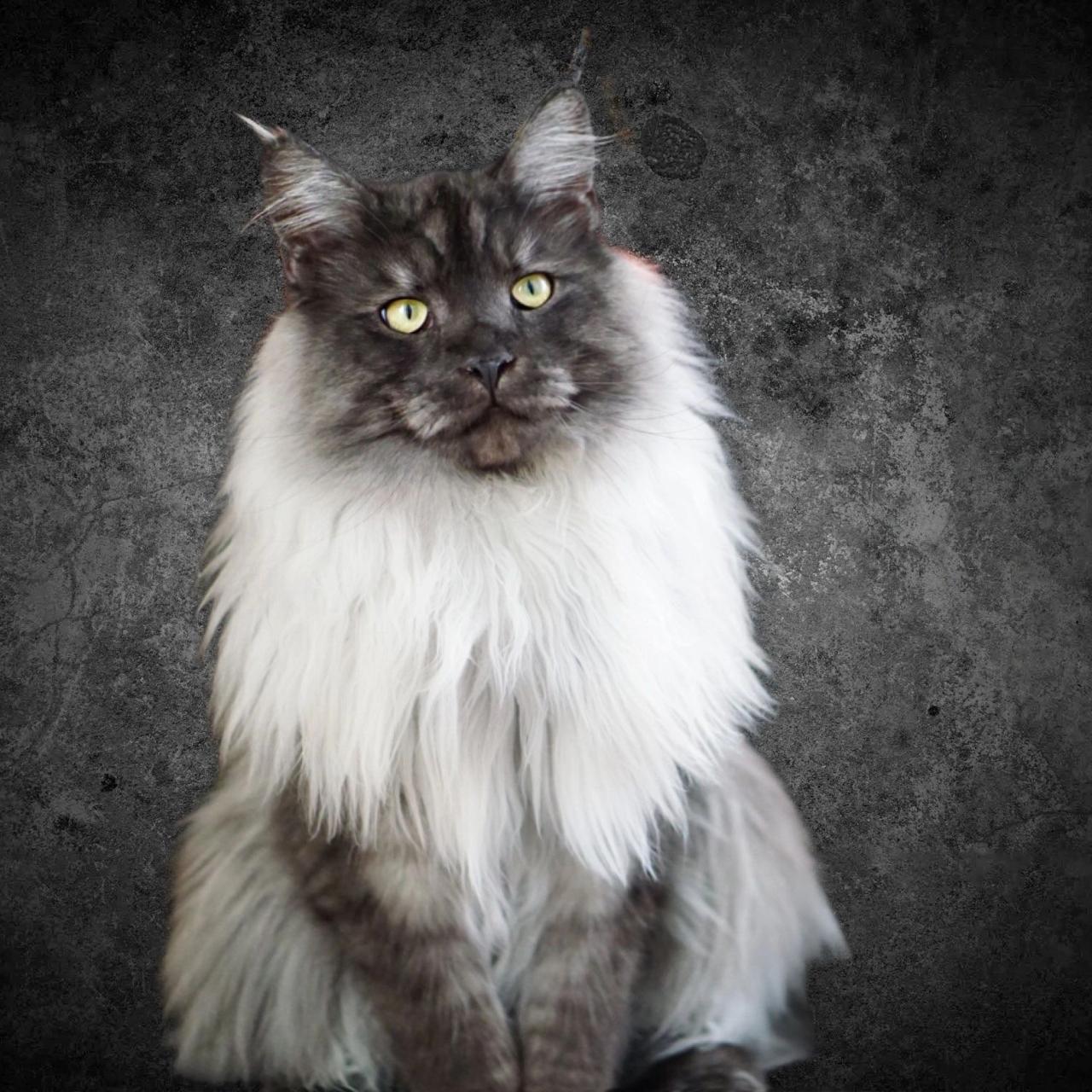
Maine Coons, with their curious nature and playful personalities, may benefit from both indoor and outdoor living environments. Each option offers unique advantages and considerations that prospective owners should weigh carefully before making a decision.
Indoor Living
Indoor living provides Maine Coons with a safe and controlled environment, protecting them from outdoor hazards such as predators, extreme weather, and disease. Indoor cats enjoy access to a litter box, comfortable bedding, and toys, allowing them to engage in their natural behaviors while being protected from the elements.
Outdoor Living
Outdoor living allows Maine Coons to experience their natural instincts, such as climbing, hunting, and exploring. They can bask in the sun, chase birds, and engage in physical activity that helps them stay healthy and active. However, outdoor living poses risks such as exposure to predators, parasites, and traffic, which require responsible supervision and safety precautions.
Litter Box Training
Litter box training is an essential part of caring for a Maine Coon kitten. It helps establish good hygiene habits and prevents accidents around the house. Here’s a step-by-step guide to litter box training your kitten:
Step 1: Choose the Right Litter Box
Select a litter box that is large enough for your kitten to comfortably turn around and dig. Covered litter boxes can provide privacy and reduce odor, but some kittens may prefer open boxes.
Step 2: Find a Suitable Location
Place the litter box in a quiet, easily accessible area away from food and water bowls. Avoid high-traffic areas or places where your kitten might feel threatened.
Step 3: Introduce Your Kitten to the Litter Box
Gently place your kitten in the litter box after meals and naps, as these are times when they are likely to eliminate. Encourage them to explore the box and get used to its texture.
Step 4: Supervise and Reward
Watch your kitten closely after introducing them to the litter box. If they start to eliminate, immediately praise them and give them a treat. This will reinforce the desired behavior.
Step 5: Be Patient and Consistent
Litter box training takes time and patience. Accidents may happen, especially with young kittens. Clean up any messes immediately and avoid punishing your kitten. Instead, redirect them to the litter box and continue with the training process.
Additional Tips:
- Use a clumping litter that is unscented and free from harmful chemicals.
- Clean the litter box daily to remove waste and prevent odors.
- If your kitten has difficulty using the litter box, consult with your veterinarian to rule out any underlying medical issues.
Grooming
Maine Coon kittens require regular grooming to maintain their beautiful, thick coats and prevent mats and tangles. Here’s a comprehensive guide to grooming your Maine Coon kitten:
Brushing
Brush your kitten’s coat at least twice a week with a slicker brush and a comb. The slicker brush removes loose hair and prevents mats, while the comb helps distribute natural oils and remove any remaining tangles.
Bathing
Maine Coon kittens do not require frequent bathing, but they should be bathed every 6-8 weeks. Use a gentle cat shampoo and warm water, and avoid getting water in their ears or eyes. Rinse thoroughly and towel dry your kitten after bathing.
Nail Care
Trim your kitten’s nails every 2-3 weeks. Use a cat nail clipper and cut only the white tips of the nails, avoiding the pink quick. If you’re not comfortable trimming your kitten’s nails yourself, you can take them to a groomer or veterinarian.
Playing and Exercise
Maine Coon kittens are energetic and playful, requiring plenty of opportunities to expend their energy and satisfy their curious nature. A well-rounded play and exercise routine is essential for their physical and mental well-being.
To meet the physical needs of a Maine Coon kitten, provide interactive play sessions that involve chasing, jumping, and climbing. Incorporate toys such as wand toys with feathers or ribbons, balls that roll and bounce erratically, and scratching posts or cat trees to encourage vertical exploration.
Mental Stimulation
Mental stimulation is equally important for Maine Coon kittens. Puzzle toys, such as treat-dispensing balls or food puzzles, engage their cognitive abilities and provide a sense of accomplishment. Hide-and-seek games or interactive laser pointers can also stimulate their hunting instincts and keep them entertained.
Duration and Frequency
Aim for at least 30 minutes of supervised play and exercise per day, divided into multiple short sessions throughout the day. This allows for periods of rest and prevents over-exertion. As kittens grow older, their play and exercise needs may change, so adjust the routine accordingly.
Importance of Play
- Promotes physical fitness and coordination.
- Stimulates mental development and cognitive abilities.
- Provides an outlet for energy and prevents boredom.
- Strengthens the bond between you and your kitten.
Last Point
As you welcome a male Maine Coon kitten into your life, be prepared for a whirlwind of love, laughter, and unforgettable moments. Their gentle souls and playful antics will forever leave an imprint on your heart. Whether you’re a seasoned cat enthusiast or a first-time pet owner, these extraordinary kittens offer a bond that will last a lifetime.

